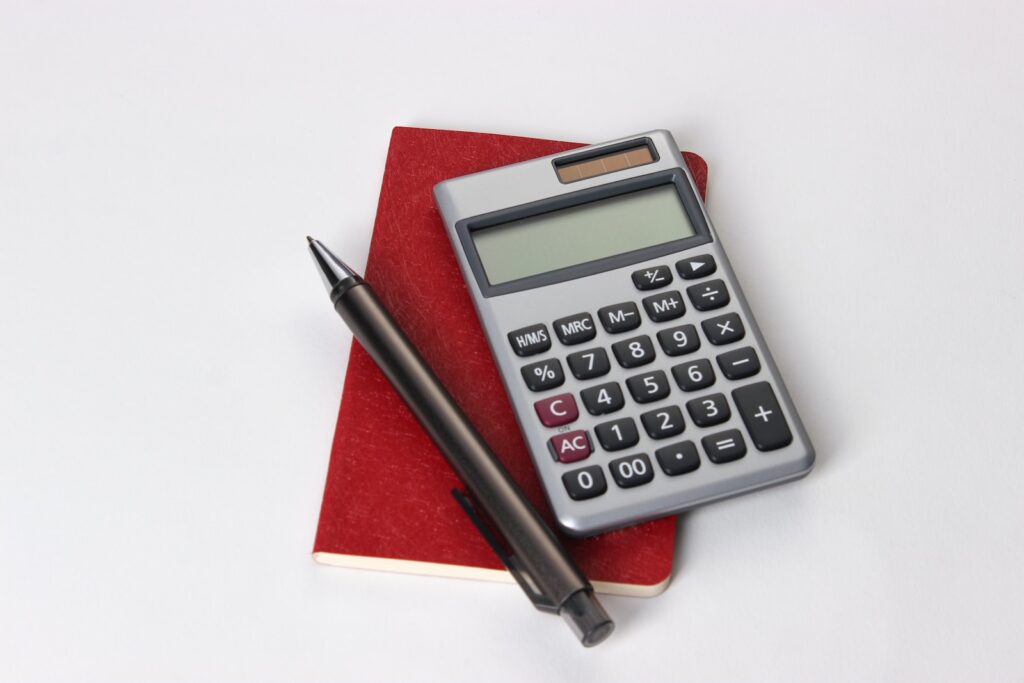How to Handle Taxes When Selling Your Home for Cash
Introduction
Selling your home for cash can be a great way to get a quick sale and move on with your life. But it’s important to understand the tax implications of such a sale. Knowing how to handle taxes when selling your home for cash can help you avoid any unexpected surprises down the road. With the right information and preparation, you can make sure you’re in compliance with all applicable laws and regulations.
This guide will provide you with the information you need to make sure you’re handling taxes correctly when selling your home for cash. We’ll cover the basics of taxes, how to calculate them, and how to file them properly. With this knowledge, you can be confident that you’re taking the right steps to ensure a successful sale.
Understanding Tax Implications When Selling Your Home for Cash
Selling your home for cash can be a great way to quickly and easily get the money you need. However, it’s important to understand the tax implications of such a sale. When you sell your home for cash, you may be subject to capital gains taxes. This means that you will need to pay taxes on any profits you make from the sale. To ensure that you are properly prepared for this, it’s important to understand the tax implications of selling your home for cash.
First, you should understand the capital gains tax rate. This rate is based on your income and can range from 0% to 20%. It’s important to know what your rate is so that you can accurately calculate the taxes you will owe. Additionally, you should be aware of any deductions or credits that may be available to you. These can help reduce the amount of taxes you owe.
Finally, it’s important to understand the timeline for filing taxes on the sale of your home. Generally, you will need to file taxes within a certain period of time after the sale. This timeline can vary depending on the state you live in, so it’s important to be aware of the specific requirements in your area.
By understanding the tax implications of selling your home for cash, you can ensure that you are properly prepared for the process. Knowing the capital gains tax rate, any deductions or credits available, and the timeline for filing taxes can help you make the most of your sale and ensure that you are not hit with any unexpected taxes.
Researching Local Tax Laws
When it comes to selling your home for cash, researching local tax laws is an important step in the process. Knowing the tax implications of selling your home can help you make the best decision for your financial future. It’s important to understand the tax laws in your area, as they can vary from state to state. Depending on where you live, you may be subject to capital gains taxes, transfer taxes, or other taxes. It’s important to consult with a tax professional to ensure you are aware of all the taxes you may be liable for.
In addition to researching local tax laws, it’s also important to understand the tax implications of selling your home for cash. Depending on the amount of money you receive from the sale, you may be subject to capital gains taxes. Additionally, you may be required to pay transfer taxes, which are taxes imposed by the state or local government on the transfer of real estate. It’s important to understand these taxes and how they may affect your financial situation. Consulting with a tax professional can help you make the best decision for your financial future.
Selling your home for cash can be a great way to get the money you need quickly. However, it’s important to understand the tax implications of such a sale. Researching local tax laws and consulting with a tax professional can help you make the best decision for your financial future. With the right information, you can ensure that you are making the most of your sale and getting the most out of your money.
Calculating Capital Gains Tax
When it comes to selling your home for cash, it’s important to understand the tax implications. Capital gains tax is a tax on the profit you make when you sell an asset, such as a home, for more than you paid for it. Calculating capital gains tax can be a complex process, but it’s important to understand the basics in order to ensure you’re paying the right amount.
The first step in calculating capital gains tax is to determine your cost basis. This is the amount you paid for the home, plus any improvements you made to it. Once you have your cost basis, you can subtract it from the amount you sold the home for to determine your capital gain. This amount is then taxed at your marginal tax rate.
It’s also important to understand the tax implications of selling your home for cash. If you sell your home for cash, you may be eligible for a capital gains tax exclusion. This exclusion allows you to exclude up to $250,000 of your capital gain from taxation if you’re single, or up to $500,000 if you’re married filing jointly.
By understanding the basics of capital gains tax and the tax implications of selling your home for cash, you can ensure you’re paying the right amount of taxes. With the right knowledge and preparation, you can make the most of your home sale and maximize your profits.
Understanding Tax Deductions
When it comes to selling your home for cash, understanding tax deductions is key. As a homeowner, you may be eligible for certain deductions that can help you save money on your taxes. For example, if you sell your home for a profit, you may be able to deduct the cost of any improvements you made to the home. Additionally, you may be able to deduct any real estate taxes you paid during the sale. It’s important to consult with a tax professional to ensure you are taking advantage of all the deductions available to you.
Another way to save money on taxes when selling your home for cash is to take advantage of the capital gains exclusion. This allows you to exclude up to $250,000 of the profit from the sale of your home from your taxable income. This can be a great way to save money on taxes and ensure you are getting the most out of your sale.
By understanding the tax deductions available to you when selling your home for cash, you can save money and ensure you are getting the most out of your sale. With the right knowledge and guidance, you can confidently navigate the tax implications of selling your home and maximize your profits.
Navigating Tax Forms When Selling Your Home for Cash
Selling your home for cash can be a great way to get a quick sale and avoid the hassle of dealing with a real estate agent. However, it’s important to understand the tax implications of such a sale. When you sell your home for cash, you must report the sale on your taxes and pay any applicable taxes. To make sure you’re in compliance with the law, it’s important to understand the tax forms you’ll need to fill out and the taxes you’ll need to pay.
The first step is to fill out IRS Form 1099-S. This form is used to report the sale of your home and any proceeds you received from the sale. You’ll need to provide information about the buyer, the sale price, and any other relevant details. Once you’ve filled out the form, you’ll need to submit it to the IRS.
Next, you’ll need to calculate any taxes you owe on the sale. Depending on your state, you may be subject to capital gains taxes on the sale of your home. You’ll need to calculate the amount of taxes you owe and submit them to the IRS.
Finally, you’ll need to file your taxes. When you file your taxes, you’ll need to include the information from Form 1099-S and any taxes you owe on the sale. Make sure to keep all of your paperwork and records in case the IRS has any questions.
Selling your home for cash can be a great way to get a quick sale, but it’s important to understand the tax implications of such a sale. By understanding the forms you’ll need to fill out and the taxes you’ll owe, you can ensure you’re in compliance with the law and avoid any potential penalties.
Tips for Minimizing Tax Liability When Selling Your Home for Cash
When it comes to selling your home for cash, it’s important to understand the tax implications of such a transaction. Fortunately, there are several steps you can take to minimize your tax liability and ensure you get the most out of your sale.
First, it’s important to understand the capital gains tax. This is a tax on the profit you make from selling your home, and it can be a significant expense. To minimize your capital gains tax, you should consider taking advantage of the home sale exclusion. This allows you to exclude up to $250,000 of your profits from the capital gains tax if you are single, or up to $500,000 if you are married.
Another way to minimize your tax liability is to take advantage of any deductions you may be eligible for. For example, if you have made any improvements to your home, you may be able to deduct the cost of those improvements from your taxable income. Additionally, if you have used any of your home’s equity to pay off debt, you may be able to deduct the interest you paid on that debt.
Finally, it’s important to consult with a tax professional to ensure you are taking advantage of all the deductions and exclusions available to you. A tax professional can help you understand the tax implications of selling your home for cash and ensure you are taking all the necessary steps to minimize your tax liability.
Conclusion
Selling your home for cash can be a great way to get a quick sale and a good return on your investment. However, it is important to understand the tax implications of such a sale. By researching local tax laws, calculating capital gains tax, understanding tax deductions, and navigating tax forms, you can minimize your tax liability and maximize your profits. With the right knowledge and preparation, you can make the most of your home sale and ensure that you are in compliance with all applicable tax laws.
With the right guidance, you can make the most of your home sale and ensure that you are in compliance with all applicable tax laws. By taking the time to understand the tax implications of selling your home for cash, you can make sure that you are getting the best return on your investment.
Frequently Asked Questions
Q1: What are the tax implications of selling my home for cash?
A1: When you sell your home for cash, you may be subject to capital gains taxes. Depending on your local tax laws, you may be required to pay taxes on any profits you make from the sale. Additionally, you may be eligible for certain tax deductions, such as those related to home improvements or closing costs.
Q2: How do I research local tax laws when selling my home for cash?
A2: It is important to research local tax laws when selling your home for cash. You can start by contacting your local tax authority or consulting a tax professional. They can provide you with information about the specific tax implications of selling your home for cash in your area.
Q3: How do I calculate capital gains tax when selling my home for cash?
A3: Capital gains tax is calculated by subtracting the cost basis of your home from the sale price. The cost basis is the amount you paid for the home, plus any improvements you made to it. The difference between the sale price and the cost basis is the amount of capital gains you may be subject to.
Q4: What tax deductions can I take when selling my home for cash?
A4: When selling your home for cash, you may be eligible for certain tax deductions. These may include deductions for home improvements, closing costs, and other expenses related to the sale. It is important to consult a tax professional to determine which deductions you may be eligible for.
Q5: How do I navigate tax forms when selling my home for cash?
A5: When selling your home for cash, you will need to complete certain tax forms. These forms will vary depending on your local tax laws and the amount of capital gains you may be subject to. It is important to consult a tax professional to ensure that you are completing the correct forms and filing them correctly.
Q6: What tips can I use to minimize my tax liability when selling my home for cash?
A6: There are several tips you can use to minimize your tax liability when selling your home for cash. These include researching local tax laws, calculating capital gains tax, taking advantage of tax deductions, and navigating tax forms correctly. Additionally, it is important to consult a tax professional to ensure that you are taking all the necessary steps to minimize your tax liability.
Did You Know?
EarlToms would like to make an offer on your house. We pay cash so you won’t have any appraisals, home inspections, agent commissions, or closing fees typically associated with selling your house to EarlToms. If you want to sell your house, in a hassle-free way, simply fill out the form to get started.


